Jogi movie review: This Mohammed Zeeshan Ayyub film on the 1984 riots is deeply moving and unsettling
Set amidst tumultuous events surrounding the Delhi riots in 1984 which resulted in an anti-Sikh massacre, Jogi narrates the courageous and selfless efforts of a man who didn’t resign to his circumstances and took it upon himself to rescue those being targeted.
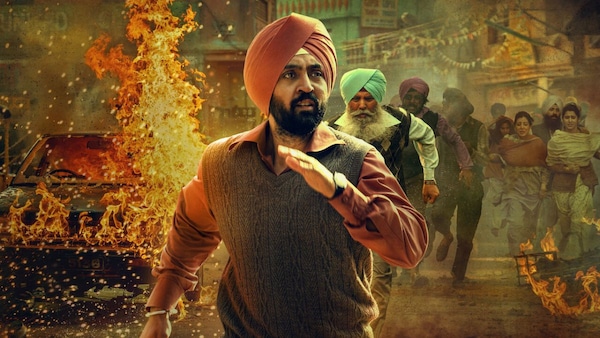
Last Updated: 09.29 PM, Sep 16, 2022
Story: Set amidst tumultuous events surrounding the Delhi riots in 1984 which resulted in an anti-Sikh massacre, Jogi narrates the courageous and selfless efforts of a man who didn’t resign to his circumstances and took it upon himself to rescue those being targeted.
Review: Despite India’s obsession with accurately re-enacting historical events on the screen, many have taken a strike from reality. This is an option where a filmmaker furnishes the settings and circumstances of a certain period in history and drafts a compelling story within it. While the central plot may be essentially fictional, it can be nudged or even intrinsically impacted by the events on record.
Jogi is set four months following the infamous Operation Blue Star which led to the assassination of the then PM Indira Gandhi which in turn triggered massive riots in Delhi and across the country. We’re ushered into a middle-income neighbourhood in Trilokpuri, East Delhi on that fateful day when things went drastically off-kilter. Jogi (Diljit Dosanjh) seems right out of an average Sikh family from East Delhi with modest means. A doting mom slaps parathas with butter on his breakfast table as the clan bickers and banters over mundane issues. Things escalate quickly when Jogi and his father board a bus to work and are assaulted by a mob. Within minutes, it’s established that Sikhs are being targeted as a violent retort to the news of the PM’s homicide which has begun permeating through the nation.
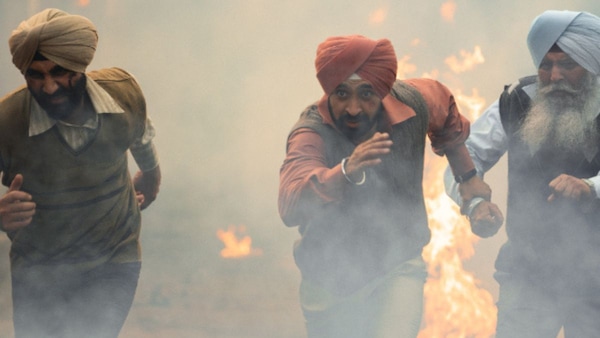
As chaos grips the city, Jogi rushes home to find his bustling neighbourhood swept in silence. Houses and shops of Sikh residents are being set ablaze by the mob out to bludgeon anyone from the community. Survival is a privilege assigned to those who manage to dodge bullets and escape. But with most routes hit by the belligerent mob, staying out of sight seems the only option. Jogi, along with several residents of his neighbourhood, takes refuge inside a Gurudwara. But it’s only a matter of time before their hideout is exposed and they must make alternate arrangements to stay protected from harm’s way.
To add fuel to the fire, this one also carves a one-dimensionally malicious politician in Tejpal (Kumud Mishra in superb form) who not only wants to champion the cause of profiling and eliminating Sikhs for political leverage but also rounds up a gang of assassins for the job. He puts a bounty on every Sikh claimed and even enrolls the city cops for the job. Katyal (Hiten Tejwani), the most devious cop in the force, is his best bet. But there’s also Ravinder (Mohd Zeeshan Ayyub), an upstanding cop who’s batting for the Sikhs and happens to be Jogi’s childhood buddy.
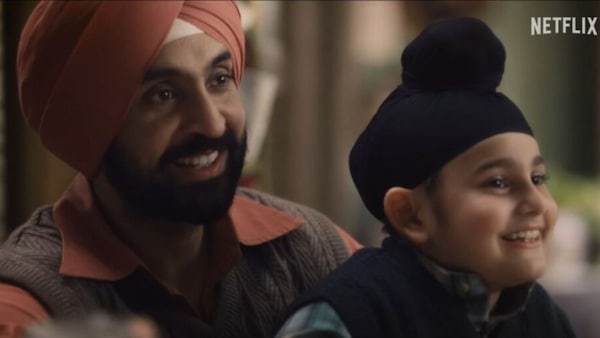
The tension in the film is consistent. Events escalate swiftly and it’s difficult to predict how this one would fold up, putting your nerves through some serious badgering. This also means that it delivers as a taut thriller packed with tropes that are blatant but unobjectionable. What does stick out in a film with only a few loose ends, is the decision to draft a back story that links Jogi to one of the key perpetrators of the mob. Apart from seeming like an unnecessary twist to rationalise motives, the cutaway is at a pertinent point when the scene in question could’ve been met with decisive consequences. And so, digressing into a flashback at such a critical juncture only serves as a distraction.
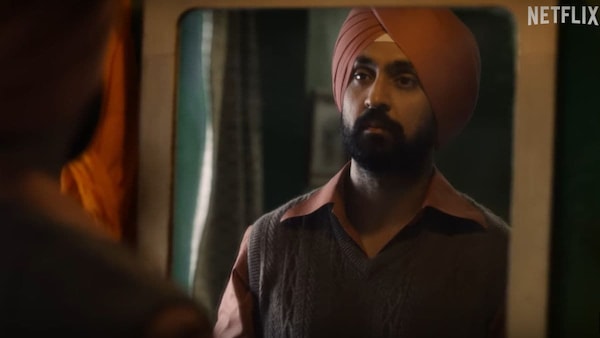
Dosanjh has forever slipped into roles with such conviction that we’re able to examine and empathise with his character’s circumstances closely. As the eponymous Jogi, he packs a selfless and unflinching sardaar willing to go the extra mile for those he cares about. Despite being the lead, he hasn’t been assigned big performance scenes that would test his ability to stand strong. Ayyub knocks it out of the park as the faithful friend and virtuous cop and Tejwani is plausible as the comic-book villain, perennially plotting to put devious plans into action.
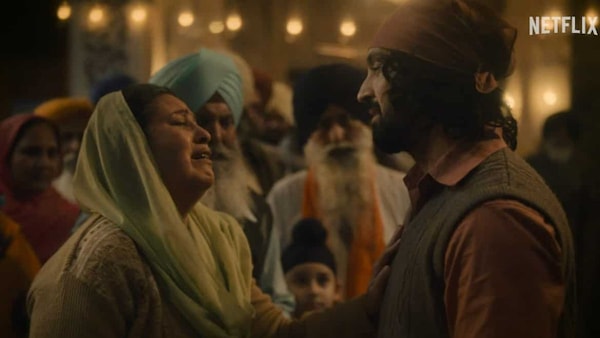
What takes us by surprise is that Jogi has been helmed by Ali Abbas Zafar, who also directed Tiger Zinda Hai and Bharat, both headlined by Salman Khan. And this film's sensibilities and treatment differ drastically from those big-budget vehicles. This is a deeply impactful, if at all a bit unsettling, film which doesn’t lean much on star power (Diljit has a nationwide following but has never been perceived as a superstar). Zafar does borrow his style of building tension in pertinent scenes from his previous outings but here, he also manages to infuse the proceedings with a more realistic edge.
Verdict: In a recent interview, Dosanjh shared that the horrific events that took place in Delhi in 1984 should be deemed a ‘massacre’ and not be dismissed as ‘riots’. And while the singular acts of hate depicted in this film are not based on a particular true story, snatches of similar events have been reported, making this a telling story of hate. So while Jogi makes for a compelling watch, it also compels one to empathise with those who’ve succumbed to this unparalleled tragedy.
WHERE
TO WATCH
Subscribe to our newsletter for top content, delivered fast.

